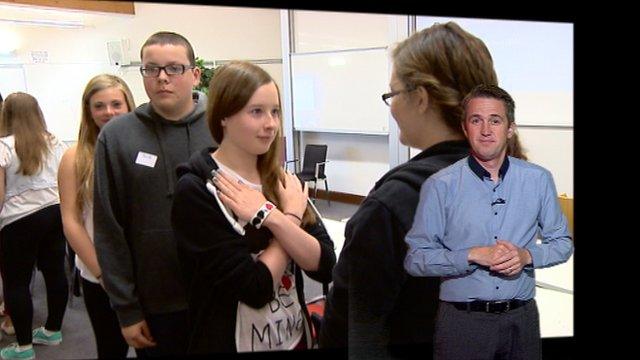Sign language costs 'too high' for some families
- Published
'Like the world ended': Mother on deaf son's diagnosis
Families with a deaf child are having to spend hundreds of pounds on British Sign Language lessons to be able to communicate with them.
The Children's Commissioner for Wales Sally Holland said many were not able to afford to pay for classes.
Some families have also expressed concerns about the lack of provision for children in mainstream schools.
The Welsh Government said it had supported training to increase the number of translators in Wales.
According to the British Deaf Association, there are about 6,000 British Sign Language (BSL) users in Wales, of which about 4,000 are deaf.
It is estimated up to 90% of deaf children are born to hearing families.
Ms Holland said: "I've talked to hearing parents and deaf parents about bringing up their children who are deaf and it's quite clear they're not all getting the support they need to do that successfully.
"There are only between 2,000-3,000 children right up to the age of 19 in Wales who are deaf - so we're not talking about enormous numbers here.
"Those children, I don't think are getting all the help that they need at the moment in Wales and we should be providing more."
Kimberly Hooper, from Cardiff, has a three-year-old son called Oliver who has a cochlear implant which allows him to hear and communicate orally. Without them Oliver is profoundly deaf.
He was diagnosed just 10 days after being born with no family history of deafness, his mother said it had had a massive impact on them.
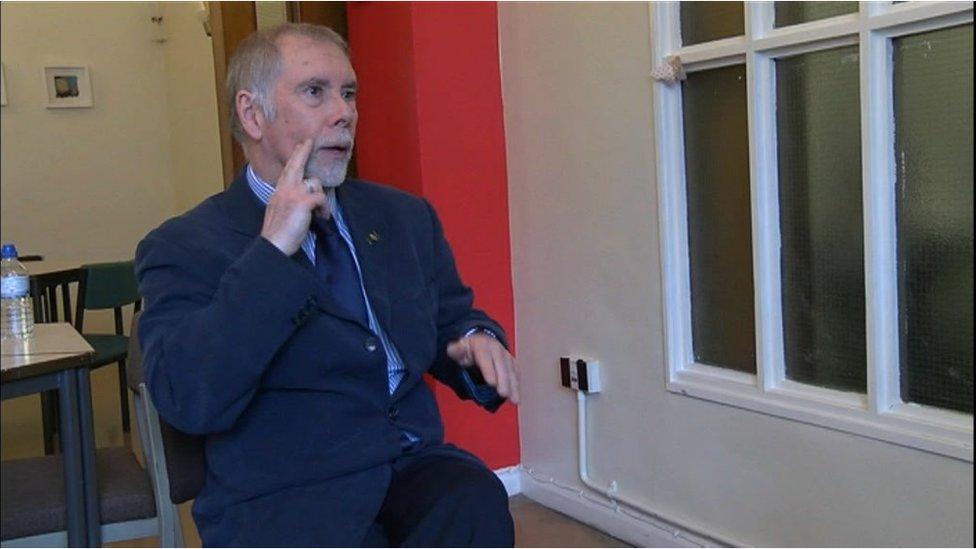
Paul Redfearn said a lack of legislation around BSL made it harder for parents to get help
Ms Hooper said: "It's really upsetting and it's really hard and it takes its toll on a family. We've had to find the extra money to learn sign language."
"I have completed my British Sign Language level one which was at the cost of over £350. We can't afford for my husband to sit that course at that cost as well.
"While I was doing the course, we also had arrange for someone to stay at home to look after the children. My daughter also has to communicate with Oliver. She's his sibling, she's part of the family.
"When you get told your child is profoundly deaf one thing you are told by the health advisers is the importance of British Sign Language and using it with your child.
"But then you come home and realise as a family you know nothing about sign language and I've asked everywhere for help as a hearing parent but there is nothing out there."
Ms Hooper said the family felt they spent the first six months researching to get the advice and help they needed because "there was nowhere we could go locally".
Cardiff Deaf Club has recently founded a family sign programme, Creative Hands, to help hearing parents with deaf children meet other deaf families.
Paul Redfern from the British Deaf Association said: "Such an opportunity as this will allow for hearing parents to learn more about managing their own deaf child in a hearing world. I don't believe enough attention has been given to this area."
He said as BSL was not an official language, there was no legislation in place to help parents access teaching and support.
A Welsh Government spokesman said: "While responsibility to ensure BSL is available to a child who requires the provision rests with local authorities, we have supported training to increase the number of qualified interpreters in Wales, and ensured that legislation, policies and programmes are in place to recognise the importance of accessible communications to everyone."
- Published12 November 2016
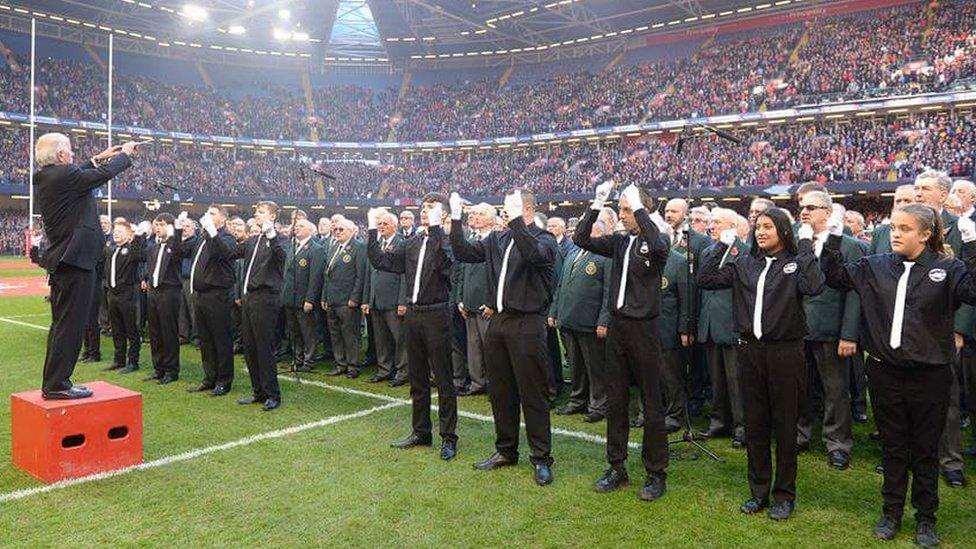
- Published17 September 2014
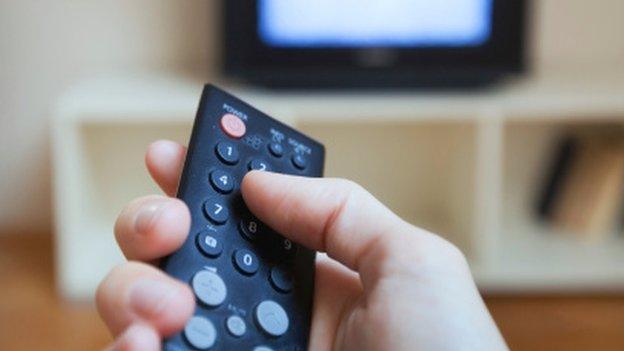
- Published17 June 2013
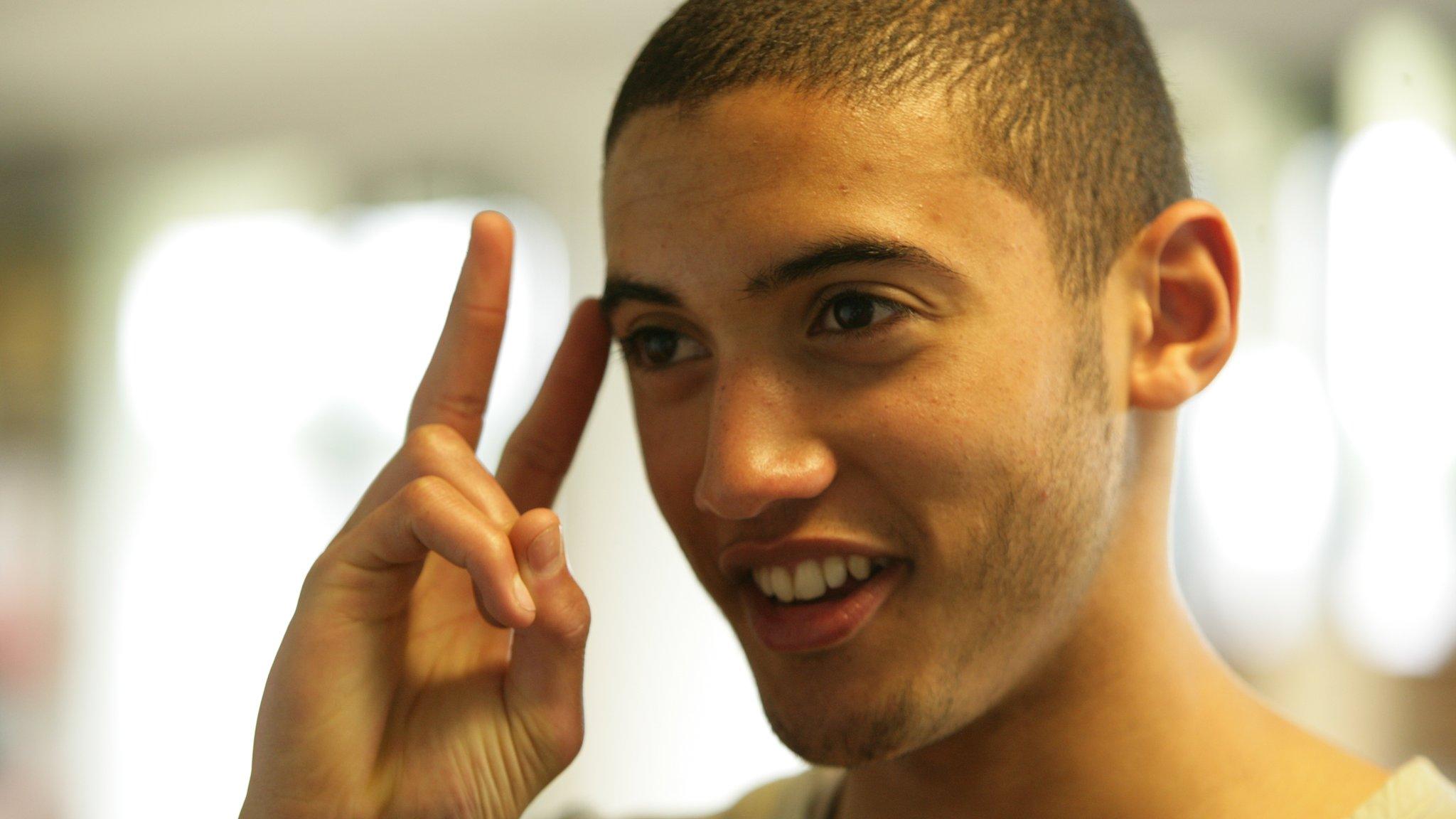
- Published12 August 2013
